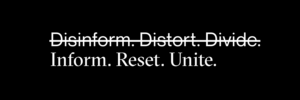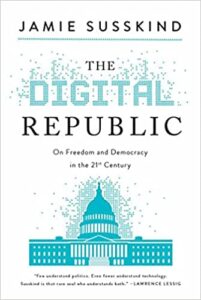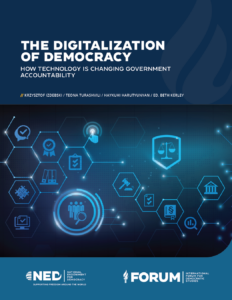Twitter accounts operated by authoritarian governments in Russia, China and Iran are benefiting from recent changes at the social media company, making it easier for them to attract new followers and broadcast propaganda and disinformation to a larger audience, researchers said Monday:
The platform is no longer labeling state-controlled media and propaganda agencies, and will no longer prohibit their content from being automatically promoted or recommended to users. Together, the two changes, both made in recent weeks, have supercharged the Kremlin’s ability to use the U.S.-based platform to spread lies and misleading claims about its invasion of Ukraine, U.S. politics and other topics.
 Russian state media accounts are now earning 33% more views than they were just weeks ago, before the change was made, according to findings released Monday by Reset, a London-based nonprofit that tracks authoritarian governments’ use of social media to spread propaganda. Reset’s findings were first reported by The Associated Press:
Russian state media accounts are now earning 33% more views than they were just weeks ago, before the change was made, according to findings released Monday by Reset, a London-based nonprofit that tracks authoritarian governments’ use of social media to spread propaganda. Reset’s findings were first reported by The Associated Press:
Reset’s conclusions were confirmed by the Atlantic Council’s Digital Forensic Research Lab, where researchers determined the changes were likely made by Twitter late last month. Many of the dozens of previously labeled accounts were steadily losing followers since Twitter began using the labels. But after the change, many accounts saw big jumps in followers.
 The idea that, simply by virtue of owning and controlling a particular technology, someone wields arbitrary or unaccountable power which can touch every aspect of our liberty and our democracy, says Jamie Susskind, author of The Digital Republic: On Freedom and Democracy in the 21st Century.
The idea that, simply by virtue of owning and controlling a particular technology, someone wields arbitrary or unaccountable power which can touch every aspect of our liberty and our democracy, says Jamie Susskind, author of The Digital Republic: On Freedom and Democracy in the 21st Century.
So to be a digital republican is to want to see laws that hold power accountable rather than just hoping that the power is used in a benign and wise, he tells Democracy Paradox.
New cutting-edge technologies are transforming how governments interact with citizens, as authorities automate key services varying from law enforcement to social services. In an essay series recently released by the National Endowment for Democracy’s International Forum for Democratic Studies, three experts from Poland, Georgia, and Armenia explore the often under-appreciated risks and opportunities of digitalization and how it is transforming government accountability.
 “Artificial intelligence and other digital tools are changing how governments operate,” said Christopher Walker, Vice President for Studies and Analysis at NED. “Digital technologies can be powerful tools for holding public officials accountable. But without transparency and public oversight, government collection and processing of digital data has the potential to weaken trust in government and erode democratic norms over the long term.”
“Artificial intelligence and other digital tools are changing how governments operate,” said Christopher Walker, Vice President for Studies and Analysis at NED. “Digital technologies can be powerful tools for holding public officials accountable. But without transparency and public oversight, government collection and processing of digital data has the potential to weaken trust in government and erode democratic norms over the long term.”
Today digital repression is increasingly used as a means for autocratic leaders who wish to suppress societal discourse and democratic aspirations, the Carnegie Endowment adds. Russia deploys digital tools to assert control over citizens and censor voices opposing the War on Ukraine, while China and Iran go to great lengths to deploy advanced surveillance and censorship to quell dissent within their borders. Director of National Intelligence Avril Haines discusses combatting digital authoritarianism with Carnegie’s Dan Baer (above).







